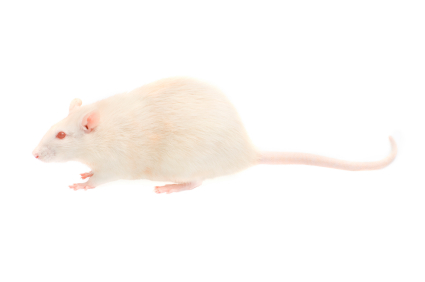Depression May Not Be All in Your Head
 Repeated social defeat stress (when an intruder mouse is repeatedly threatened by a larger mouse defending its home territory) is often used as a model to study human depression. Animals repeatedly exposed to social defeat stress start to exhibit depression-like behaviors such as social avoidance and loss of interest in sucrose. Georgia Hodes, a researcher at Mount Sinai School of Medicine, reported at a recent scientific meeting that repeated defeat stress–induced behavior was blocked when IL-6, an inflammatory cytokine released by white blood cells in the blood, was inhibited. The central nervous system did not appear to be involved.
Repeated social defeat stress (when an intruder mouse is repeatedly threatened by a larger mouse defending its home territory) is often used as a model to study human depression. Animals repeatedly exposed to social defeat stress start to exhibit depression-like behaviors such as social avoidance and loss of interest in sucrose. Georgia Hodes, a researcher at Mount Sinai School of Medicine, reported at a recent scientific meeting that repeated defeat stress–induced behavior was blocked when IL-6, an inflammatory cytokine released by white blood cells in the blood, was inhibited. The central nervous system did not appear to be involved.
Interestingly, mice with more white blood cells and more IL-6 release at baseline (prior to the social defeat stress) were more likely to show the defeat-stress depressive behaviors.
Editor’s Note: The higher number and greater reactivity of white blood cells seen in these mice could be a clinical marker of vulnerability to defeat stress, and such findings are worthy of study in human depression. White blood cells are critical to fighting infection and sometimes their overactivity can contribute to inflammation. In meta-analyses, a subgroup of depressed patients consistently show elevated inflammatory markers (including IL-1, IL-6, TNF alpha, and CRP), and it remains to be seen whether these markers of inflammation are generated in the central nervous system or come from white blood cells in the blood, and whether their targeted suppression could be a new route to antidepressant effects (as in the study of defeat stress in mice).

